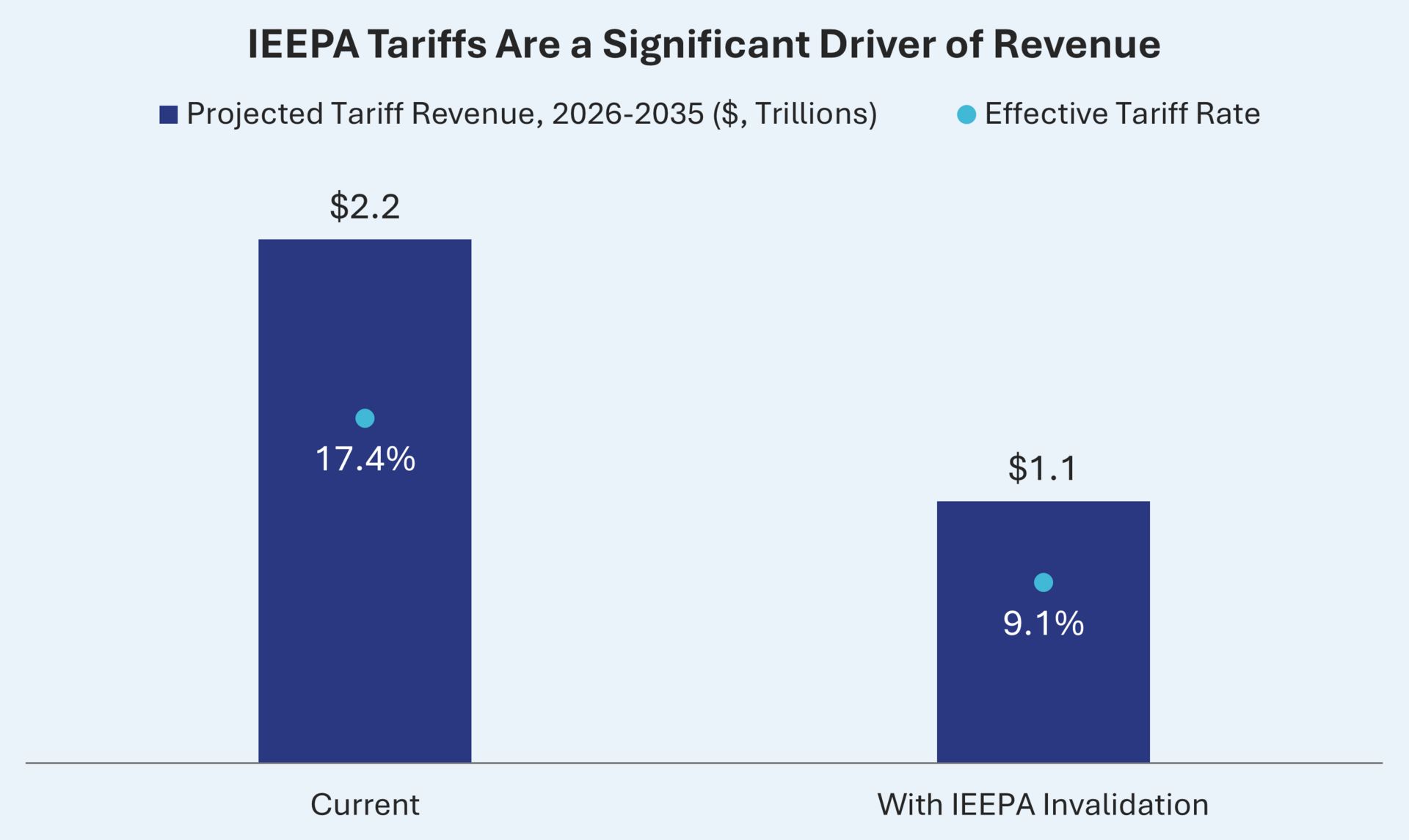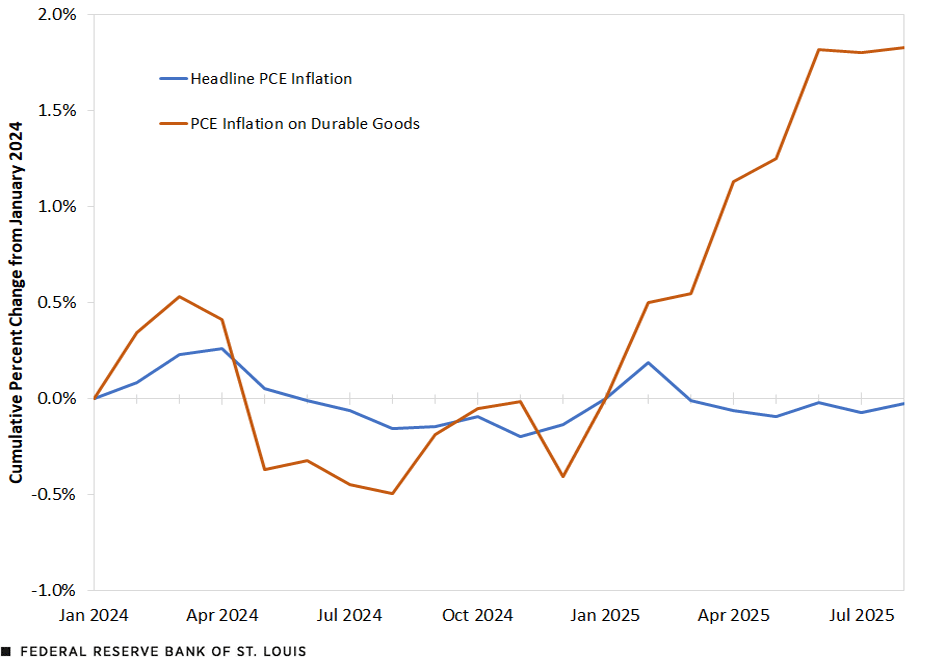|
Download the attached chart book for a brief summary on the IEEPA tariff situation
The Supreme Court has taken up a case that could deal a major blow to the Trump administration’s trade policy.
Last week, the court heard oral arguments on the Trump administration’s use of the International Emergency Economic Powers Act (“IEEPA”) to implement widespread tariffs on trading partners.

Source: Bloomberg
Tariffs implemented under the IEEPA, which allows the president to take action by declaring a “national emergency,” now account for approximately half of all tariffs and include:
Fentanyl-related tariffs on China, Mexico and Canada
Reciprocal tariffs on US trade partners
Negotiated tariff rates from trade deals
Given the scale of IEEPA tariffs, the Supreme Court’s ruling is a crossroads for the president’s trade agenda.
Tariff Windfall
Under Trump’s second term, the effective US tariff rate has surged from 2% before Inauguration Day to 18% today, the highest since the early 20th century.
The revenue impact has been enormous. Monthly net customs duties have climbed to $30 billion as of September, or over $300 billion on an annualized basis.

Source: US Treasury
IEEPA tariffs account for a substantial portion of these revenues. Of the $195 billion of revenue collected in Fiscal Year 2025, roughly $90 billion came from IEEPA measures.1
Looking ahead, current tariff policy is projected to generate $2.2 trillion in federal revenues over the next decade. But if the court strikes down IEEPA tariffs, and these tariffs aren’t replaced, this figure would be cut in half to $1.1 trillion.

Source: Yale Budget Lab
Comments from the Trump administration suggest that a ruling against IEEPA tariffs wouldn’t be the end of the story. Officials have indicated that the administration would use alternative legal authorities to reinstate the tariffs, if necessary.
But even so, an adverse ruling could trigger a major disruption: refunds on tariffs already paid.
Given the US’s precarious financial position, $90 billion or more in potential refunds would be a meaningful cost for a government already straining under massive deficits. Not to mention, this figure could grow into hundreds of billions the longer the Supreme Court deliberates.
The Price of Tariffs
Given the inflationary environment, Trump’s tariffs have been heavily scrutinized for their impact on consumer prices.
Traditional economic theory views tariffs as a tax that should be fully passed onto consumers. A Federal Reserve study from October supports this view, finding a clear rise in price trends for goods most exposed to tariffs.

Source: Federal Reserve Bank of St. Louis
But the study also found that companies have only passed on a fraction of these costs. The Fed study estimates that ~35% of tariff expenses have been passed on through higher prices, adding roughly 0.5% to overall inflation.
Since tariffs of this level haven’t been seen in a century, the impact on prices in the long run remains a question.
While most expect businesses to gradually pass on the full cost of tariffs over time, there are other complicating factors like foreign exchange rates and competitive dynamics that make the full pricing impact hard to predict.
Long Odds
The odds of a favorable ruling do not look good for the Trump administration.
The prediction market on Polymarket places the odds of a ruling for Trump at just 25%, down sharply after last week’s Supreme Court hearing.
Polymarket’s odds mirror the view of many legal scholars, who find it unlikely that the Supreme Court would affirm broad presidential authorities that sidestep the role of Congress in regulating commerce.

Source: Polymarket
The case over Trump’s tariffs carries significant financial and geopolitical stakes beyond the legal question.
If IEEPA tariffs are invalidated, which is the most likely outcome, it could trigger hundreds of billions in refunds and force a reset of the administration’s trade playbook.
The information contained herein should not be construed as legal, investment, accounting or other professional services advice on any subject. ILLIQUID INSIGHTS LLC, its affiliates, officers, directors, partners and employees expressly disclaim all liability in respect to actions taken or not taken based on any or all the contents of this publication. Furthermore, opinions expressed by participants herein are not the opinions of ILLIQUID INSIGHTS LLC. Copyright © 2025 ILLIQUID INSIGHTS LLC. All rights reserved.

